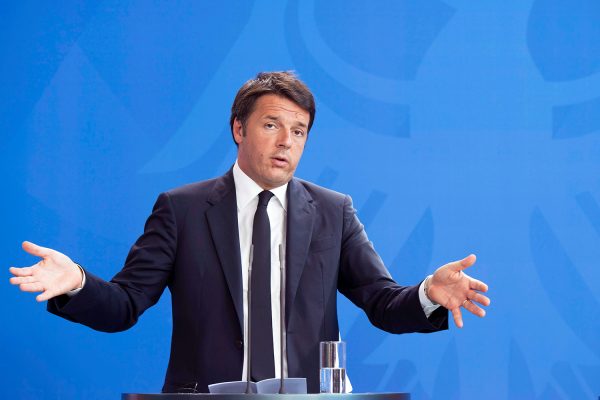
Former Italian prime minister Matteo Renzi is leaving the Democrats to form his own new centrist party. Some thirty lawmakers are reportedly ready to go with him.
Renzi, a social democrat, is hoping to do for Italy what Emmanuel Macron did for France.
Don’t bet on it.
Renzi is no Macron
Whereas the French president has thoroughly reformed France, the Italian watered down labor reforms in the face of left-wing and trade-union opposition.
As prime minister, he did make it easier for firms to hire and fire workers. But the changes did not apply to anyone already in work. Tax breaks to incentivize hiring under the new rules were phased out after one year.
Renzi also failed to lift licensing requirements that make it difficult for young Italians to start a career as a lawyer, notary, pharmacist or taxi driver.
Nor did he manage to improve the enforcement of contracts or speed up Italy’s courts, two longstanding impediments to business and investment.
Unemployment fell from 13 to 11 percent while Renzi was in power. But by the time he left office, one in three young Italians was still out of work.
Renzi is a showboat
When Renzi tried to persuade Italians to vote for constitutional changes in 2016, he unwisely tied his premiership to the outcome.
Renzi thought he could blackmail voters. Rather than shift public opinion in his favor, almost 60 percent of Italians eventually voted against the reforms, which would have taken power away from the Senate and made it easier for the largest party to govern.
Centrist parties don’t do well in Italy
When Prime Minister Mario Monti ran for reelection at the head of a centrist coalition in 2013, he won just 10 percent of the votes. The party subsequently disbanded.
In the last election, the anti-establishment Five Star Movement and the far-right League split half the votes. The Democrats and Silvio Berlusconi’s right-wing Forza Italia took 37 percent. If Italians are pining for a restoration of the center, I don’t see it.
A poll published in La Repubblica gives Renzi just 3 to 8 percent support.
The Italian electoral system gives a bonus to the largest party, or coalition of parties. By splitting the left-wing vote, Renzi makes it more likely that Matteo Salvini’s League will prevail in the next election. It could then form an all-right government with Forza Italia and the nationalist Brothers of Italy.
